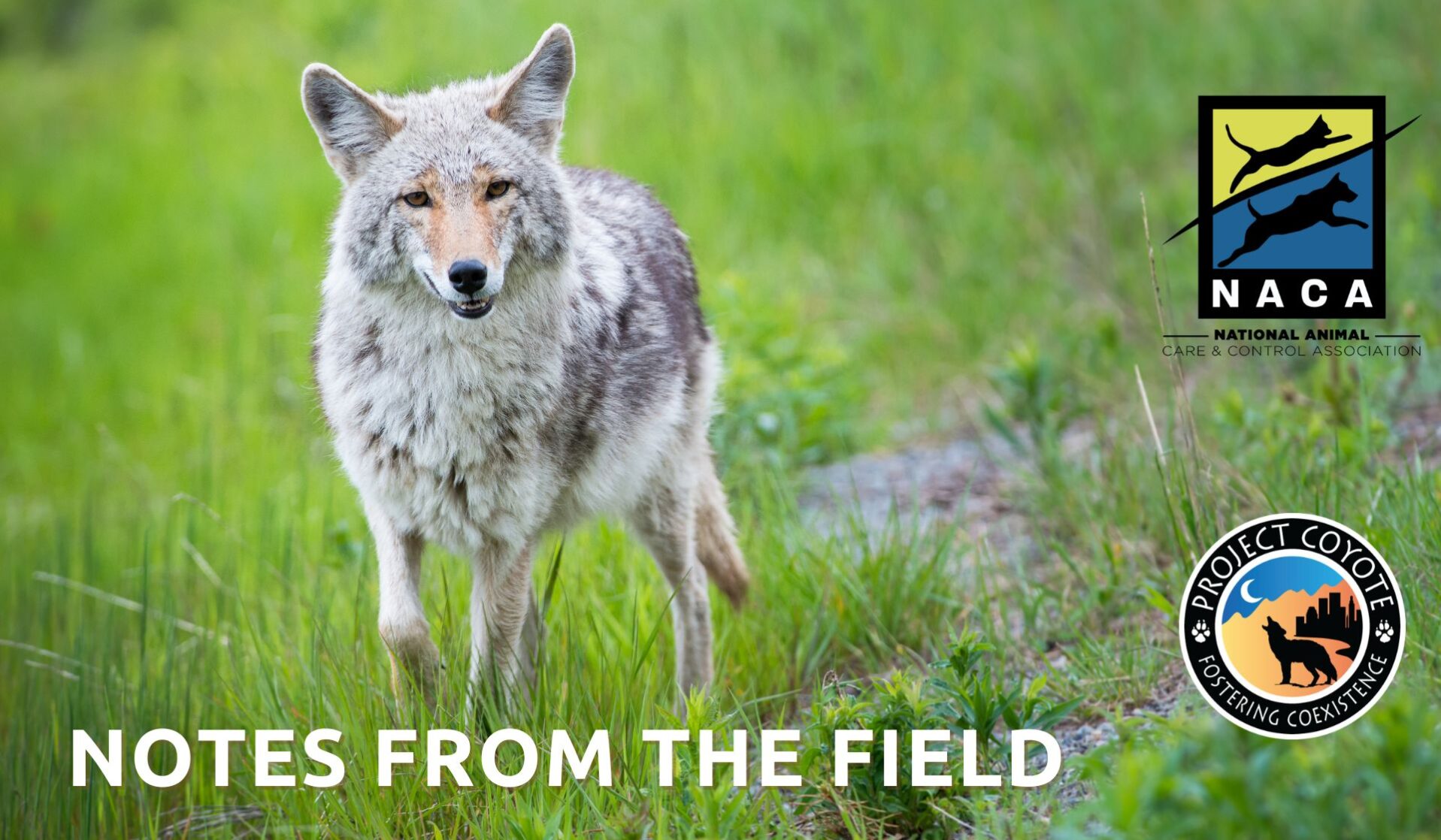NOTES FROM THE FIELD: Interview with Jerrica Owen, Executive Director ~ National Animal Care & Control Association
Thanks to everyone who joined our recent webinar co-hosted with the National Animal Care & Control Association (NACA). If you missed the live webinar, never fear–we’ve recorded it and you can view it here!
For this Notes from the Field blog, we’ve followed up with Jerrica Owen, Executive Director of NACA. Jerrica is an accomplished animal welfare professional with nearly 20 years of experience in emergent animal welfare issues.
Tell us a bit about your career and how you came to be the Executive Director of NACA?
I started with the NACA in April 2021 as the Director of Partnerships and Programs and was named Executive Director in December 2021. I have 20 years of experience in emergent animal welfare, engaging and developing a diversity of staff, shelter operations, and leading successful initiatives in animal welfare in a cross-cultural environment. I was previously the Director of Strategic Initiatives for the San Diego Humane Society, where I supported achieving success on the organization’s primary strategies across all departments including Humane Law Enforcement, which is how I came to really appreciate the work Animal Care and Control Officers (ACOs) do on a daily basis. In addition, I was the Senior Animal Response Team Leader for the Society’s Emergency Response Team and gained extensive experience in the field during some of our country’s worst disasters, supporting tactical, field and shelter operations for all types of animals including domestic, wildlife, and equine. I am committed to inclusive engagement and resource accessibility for the animal care and control profession.
Why is coexistence with wildlife important to NACA’s mission?
NACA understands the unique role that animal care and control professionals serve in communities across the country, and though each community is slightly different, coexistence with wildlife is a foundational component of ACOs work nationally. Our goal is to ensure that our members have access to the resources, tools and training necessary for all species to support a peaceful existence for all.
What are some of the biggest [overall and wildlife-specific] challenges facing ACOs currently?
ACOs are consistently faced with a diversity of challenges every day – from understaffing to under-resourced and underfunded. Despite these challenges, NACAs ACOs have a passion for their positions and the communities they serve; even when confronted with limited resources, they always manage to find success. Each community is different – rural vs urban, varying laws and ordinances and different department structures. ACOs in most communities will be faced with wildlife concerns in their area and our partnership will ensure officers have the education and tools necessary to support successful and compassionate coexistence.
What are the most essential tools for ACOs?
Training with the proper safety equipment and communication skills are the two most essential tools for ACOs. They are often on the front lines of any and all situations that involve animals and having proper training and equipment will help to achieve a positive and safe outcome for all involved. In addition, training with the most updated and science backed information on a variety of areas from animal behavior, safe handling and safe capture and the ability to effectively communicate this information with a diversity of audiences is crucial.
What are the biggest benefits of the new resources for ACOs through NACA’s partnership with Project Coyote?
The resources available through our partnership with Project Coyote will support ACOs and assist them in making meaningful connections in their communities with residents and those who may be coming into contact with coyotes. By helping to equip our officers, we are setting communities up for success. ACOs are the human-animal experts for their communities, and it’s vital we empower them with updated information, training, and tools.
Can you share anything about what’s next for NACA?
NACA is still in a bit of a rebuilding phase, but we are doing well and coming back stronger than ever! We are working on expanding training opportunities, elevating the role of ACOs and standardizing the profession. Stay tuned… lots of amazing things to come!
What can local residents do to help ACOs in their wildlife coexistence efforts?
We suggest following the guidance of your local agency with jurisdiction as some situations are context-dependent. But we have a few recommendations that are pretty universal: First, proactively preventing conflict before it starts is an essential first step. Everyone can do their part to reduce backyard attractants–anything a wild animal might find tasty, from unsecured garbage and compost to companion animal food left outdoors. The second line of defense includes humane wildlife exclusion, which is sometimes a DIY project and sometimes requires the help of professionals. Remember a call to your local ACO is always helpful!
What excites you most about the partnership between Project Coyote and NACA?
We are most excited about doing our part to provide our members with the most updated information from scientists and experts on coyote coexistence. We are the leading voice for ACOs and this is one area in particular where proper resources are universally needed. We are so thankful to Project Coyote for their support through this partnership!
Is there anything else you’d like to add?
Please check out the recording of our great webinar featuring myself, Camilla Fox and John Maguranis. John’s “stories from the field” shouldn’t be missed! We are so excited to be able to share the tools, resources, and materials available to our ACOs through this partnership.
Visit http://projectcoyote.org/NACA for more information about our co-branded and science-based resources for ACO’s, agencies and communities to help promote peaceful and proactive coexistence in your neighborhood!




